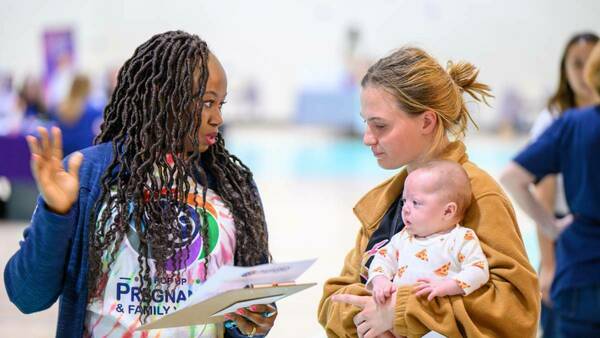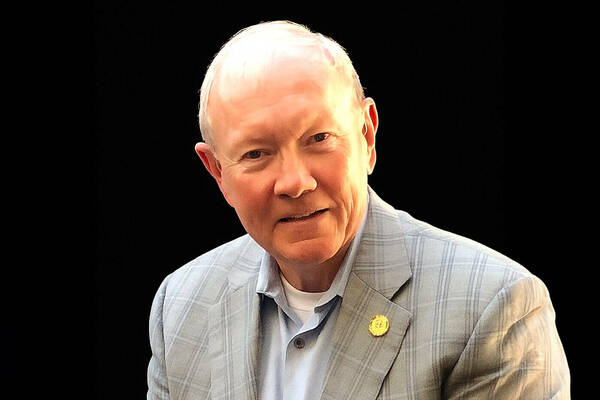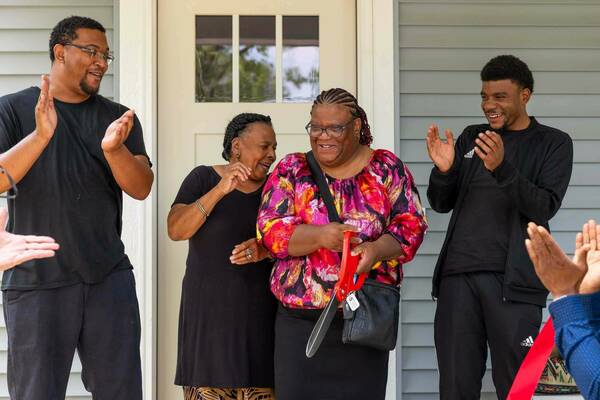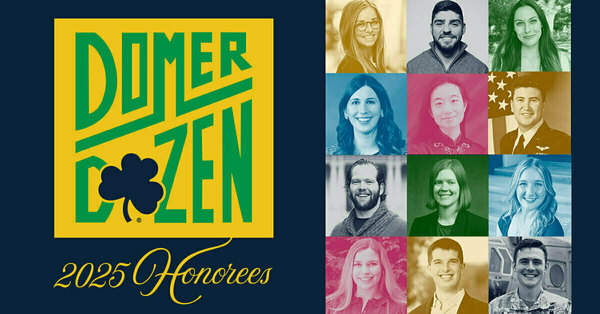Diverging views of democracy fuel support for authoritarian politicians, Notre Dame study shows

Why do people living in democratic countries vote for political candidates who openly violate democratic standards? A new study by a University of Notre Dame researcher found that diverse understandings of democracy among voters can lead to votes for authoritarian-leaning political leaders.
“A considerable variety in democratic views leads part of the electorate to overlook violations of democratic norms such as minority rights protection or restraints on executive power,” said Marc Jacob, assistant professor of democracy and global affairs at Notre Dame’s Keough School of Global Affairs. “These varied attitudes represent an important vulnerability for the democratic system as they can enable authoritarian political candidates to access and retain power.”
The study, which was published in the British Journal of Political Science, found that voters' differing conceptions of democracy shape their ability to recognize democratic violations and, in turn, affect their voting choices.
Jacob and co-authors Natasha Wunsch of the University of Fribourg, Switzerland, and Laurenz Derksen of ETH Zurich conducted a candidate choice experiment in Poland, a democracy where elections remain competitive despite some democratic backsliding over the past several years. (Democratic backsliding occurs when existing democracies slip backward toward autocracy and is currently taking place in every region of the world.)
The researchers found that respondents who supported democracy in principle but adhered less strongly to liberal democratic norms, such as minority rights protection and constraints on executive power, tolerated democratic violations more readily.

“Where liberal democratic commitment is weak or unevenly distributed across the electorate, voters cannot reliably act as safeguards against democratic backsliding,” Jacob said.
Conversely, voters who subscribed more strongly to a liberal understanding were more likely to vote against non-liberal candidates, even those from their own political party.
Jacob said that additional survey-based research and qualitative approaches such as focus groups may provide further insights into citizens’ divergent understandings of democracy. To counter further democratic backsliding, the researchers recommend extensive and deliberate investment in civic education of citizens that highlights how each individual benefits from democratic governance, especially in more recent democracies.
“Democracy education often features big, abstract ideas, but it’s just as important to show people how civil liberties, power-sharing and the rule of law directly benefit them — and to remind them that their votes play a crucial role in keeping those values alive.”
The study was funded by the Swiss National Science Foundation.
Originally published by at keough.nd.edu on March 17.
Contact: Tracy DeStazio, associate director of media relations, 574-631-9958 or tdestazi@nd.edu
Latest ND NewsWire
- Researchers deconstruct chikungunya outbreaks to improve prediction and vaccine developmentThe symptoms come on quickly — acute fever, followed by debilitating joint pain that can last for months. Though rarely fatal, the chikungunya virus, a mosquito-borne illness, can be particularly severe for high-risk individuals, including newborns and older adults. While the virus is common…
- Eck Institute investigator to strengthen postpartum care for Indiana mothersYenupini Joyce Adams, associate professor of the practice and maternal health lead for the Eck Institute for Global Health at the University of Notre Dame, is partnering with Beacon Health System to pilot a new, first-of-its-kind postpartum care model in the South Bend-Elkhart community.
- Gen. Martin Dempsey to speak at Notre Dame Forum event on ‘Hope, Global Stability and the Role of the United States’Gen. Martin Dempsey, the retired 18th chairman of the Joint Chiefs of Staff, will join University President Rev. Robert A. Dowd, C.S.C., for a fireside chat at 4 p.m. Friday (Oct. 10), as part of the 2025-26 Notre Dame Forum. The discussion, titled “Hope, Global Stability and the Role of the United States,” is part of the exploration of this year’s Notre Dame Forum theme, “Cultivating Hope.” It will take place in Rooms 215/216 of McKenna Hall and will also be livestreamed. The event is free and open to the public.
- University of Notre Dame joins the Global Coalition of Ukrainian StudiesThe University of Notre Dame has joined the Global Coalition of Ukrainian Studies after signing a memorandum of cooperation, formalized Sept. 24, at the Ukrainian Institute of America in New York City. Notre Dame joined four other American institutions that were also publicly welcomed to the coalition at this event: Arizona State University, Columbia University, Manor College and the Shevchenko Scientific Society.
- One year later, Inauguration Build a ‘dream come true’ for Habitat familiesOne year later, work on Inauguration Build 2024 is complete, offering shelter and so much more to five local families.
- Alumni Association and YoungND honor 2025 Domer DozenThe Notre Dame Alumni Association announced its 2025 Domer Dozen cohort, honoring 12 graduates ages 32 and younger for excellence in their contributions in learning, service, faith and work — the core pillars of the association’s mission.













